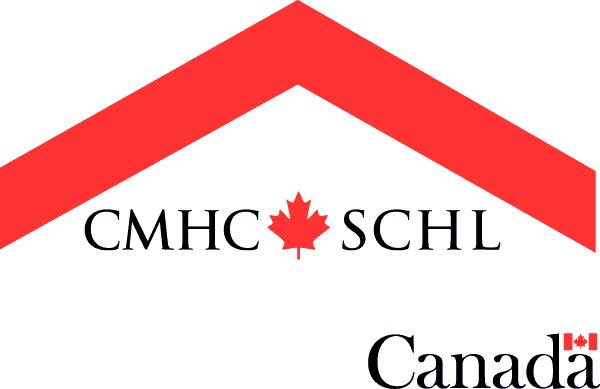We were just talking about this very subject two weeks ago, and as if on cue, the Financial Post gives us a fantastic article!
One of the largest complaints I hear about the mortgage industry from financially-responsible, somewhat better-off Canadians, is that the CMHC is insuring all kinds of high-ratio mortgages across Canada, for any and every type of real estate, resulting in a $562 Billion liability.
A prudent, frugal Canadian might suggest that the mere presence of the CMHC is “unfair” to the taxpayer.
A would-be borrower might disagree.
Let’s read an excerpt from the F.P. article and then discuss…

Here’s an excerpt from the FP article last Friday:
“Could CMHC Disappear Over Time?”
By: Garry Marr
The Financial Post
Imagine a world without Canada Mortgage and Housing Corp.
Today you can walk into a financial institution and try to borrow money for a home with only 5% of the purchase price, provided there’s an agreement between you and the bank that you’ll buy mortgage default insurance.
What happens next if the government is no longer behind that mortgage, making sure the people loaning the money or the investors buying that loan get paid, should you not make your payments?
For starters, you might gently be shown the door because nobody wants your credit risk or you might be told the risk is so high you can forget about interest calculated at 3.25% for the next five years — the rate you can still get in part because of Ottawa’s backing.
The International Monetary Fund waded into Canada’s housing market Wednesday and while it didn’t come right out and suggest that the CMHC should be abolished and the government get out of backing loans, the institution is calling for changes.
“Over the long run, the need for extensive government-backed mortgage insurance should be re-examined,” said the IMF, in its statement.
“Looking ahead, further measures should be considered to encourage appropriate risk retention by the private sector and increase the market share of private mortgage insurers. Importantly, any structural change should be made gradually over time to avoid any unintended consequence on financial stability,” the IMF said.
Further to the conversation, here’s another excerpt from an article that ran last week as well:
“IMF Urges Ottawa To Cut Back On Mortgage Insurance Through CMHC”
By: The Canadian Press
The Financial Post
Ottawa should consider phasing out insuring home mortgage through Canada Mortgage and Housing Corp., the International Monetary Fund said Wednesday.
Such a recommendation, surprising from an international financial organization, appears to side with Finance Minister Jim Flaherty, who has recently questioned whether the federal government should be in the business of insuring higher-risk mortgages at all.
Some analysts have credited the system for providing much needed confidence in Canada’s housing sector during the 2008-09 crisis, which many believe was sparked by a crisis in the U.S. mortgage market.
The IMF concedes that the current system has its advantages for stability. But it says it also exposes the government, or taxpayers, to financial system risks and might distort the market as a whole in favour of mortgages over more productive uses of capital.
“We think banks lend too much to mortgages and too little to small and medium enterprises,” Roberto Cardarelli, the IMF mission chief for Canada, told reporters in a briefing in Toronto.
“We suspect the fact that banks may benefit from government-backed insurance on mortgages (…) it sort of makes it easier for banks to do mortgages than other kinds of lending which presumably, we think, is going to be more useful for the real economy.”
I had some extended family in from Atlanta over the weekend for a dinner, and in between talking about how bad the Atlanta Falcons are playing, and whether or not Toronto is getting its own N.F.L. team called “The Toronto Bon Jon’s,” we talked about what else – the housing market!
We talked about the difference between the U.S. and Canada when it comes to banking, and lending practices, and how the United States’ financial crisis of 2008 provided a warning to Canadians that we heeded and used to change our ways.
At one point, I said, “The Canadian finance minister has tried multiple times to cool the housing market, but it just keeps going!”
I explained the changes to lending practices we’ve seen in the last two years, as well as Jim Flaherty’s outlook and what he would like to do.
Then my wife’s cousin asked me, “If you needed to immediately halt the housing market tomorrow, what is the one thing you could do?”
Simple: double the existing mortgage rate.
But that’s never going to happen, or at least, if it did, it would happen very gradually, over a very long period of time.
If you took today’s 3.49%, 5-year, fixed-rate mortgage, and suddenly made it 7%, I think it’s safe to say that the housing market would cool significantly!
The higher interest rate would make it much tougher for all of us – lower, middle, and upper segments of the market, to pay our monthly mortgage charges.
And it might take the bottom out of the market, as little Johnny with $30,000 in savings, who can afford $1,300 per month, but can’t afford $1,900 per month, would no longer be a buyer.
But just for the sake of argument, let’s ask the question: what would happen to the real estate market if the CMHC no longer insured high-ratio mortgages?
Wow, where to begin…
For those of you that need a crash-course in the Canadian Mortgage & Housing Corporation – they are a Canadian crown corporation who insure residential mortgage loans provided by financial institutions such as TD Bank, Scotiabank, etc.
So when your bank gives you $300,000 to purchase your home, that loan is insured by the CMHC, so that if you default, TD Bank or Scotia doesn’t take the loss.
The risk is therefore transferred from a massive financial institution, worth, say, a trillion-dollars, to the government of Canada, and thus the individual Canadian taxpayer.
It is estimated that the insurance risk is approximately $17,000 per Canadian, although that figure is from 2010, so I’m sure it’s now substantially more.
So what happens if the CMHC stops insuring mortgages?
Well first and foremost, banks would completely change the way they do business! No longer would banks lend 95% loan-to-value for any property that comes across their desks!
Banks might also charge a higher mortgage rate, if they did decide to lend, to try and even out the “risk versus reward” equation.
So if a bank was looking at lending $900,000 for a young couple to buy a $950,000 home, with a $50,000 down-payment, with a 3.49% mortgage rate, maybe they wouldn’t do that deal if the CMHC wasn’t insuring their $900,000!
Maybe they would do the deal, but they would charge 5.5% instead.
Who knows.
It’s all speculation.
I honestly don’t think the CMHC is going to disappear, although if the IMF is encouraging them to insure fewer high ratio residential mortgages, perhaps we could see a change on the horizon.
I think the powers-that-be are way too smart to kill the goose that lays the golden egg, and while there has been talk of “slowing down” the real estate market, nobody will benefit from a self-induced collapse.
It just isn’t going to happen.
So if you’re a tax-paying Canadian, and you work hard, and happen to be very fiscally conservative and made a 65% down payment on your home, do you think the CHMC should be providing insurance on each and every loan that a big bank makes?
Does it bother you that their lending practices are the way they are?
We could argue about this all day, and we’re all biased, based on our own financial situations.
But I see a growing number of financially-responsible Canadians who are wondering why the government continues to back high-ratio mortgages, and provide the banks with a fail-safe…
































Geoff
at 9:53 am
The CHMC program has helped hundreds of thousands of Canadians get into their first home, this Canadian included. In doing so, I have then pumped thousands of dollars back into the economy, and spent much on upgrading my house while also paying thousands in property taxes.
For all the government programs and benefits that suck (How does the Senate still get funded?) this one is actually helpful to average hard working Canadians, and doesn’t penalize us for making too much or too little and should not disappear.
It’s also worth noting that at least to my understanding, CHMC will cover the gap between what the bank loan is for, and the proceeds from the sale of the house. So yes, if the housing market collapses, it’s a real problem but there are already limits on the value of the houses it insures.
George
at 11:30 am
Banks reap most of the rewards, and taxpayers bear most of the risk. If there were 5 taxpayers and millions of banks then I think you would see a drastically different scenario. But instead, taxpayers are a heterogeneous group incapable of banding together to drive legal and political changes. Banks are the opposite. They can easily combine forces to influence government.
Joe Q.
at 11:34 am
CMHC is a strange beast. When it was first set up it had a pretty clear mandate, and to an extent the motivation for that mandate still exists (as Geoff mentions). In the meantime, though, a whole lot of spinach has grown up around it that has obscured its original mission.
Here is what disturbs me most about the CMHC:
(1) its scale (insurance-in-force is something like 33% of GDP) and rate of growth (more than doubled in less than five years) Yes, there are purchase price caps now and pre-2003, but from 2003-2012 the CMHC grew enormously.
(2) the opaque way the organization has been run in the past (the CMHC board was populated mostly by RE and building industry veterans, and had very little oversight)
(3) the potential for “moral hazard” on the part of lenders (lenders benefit from interest payments while taxpayers take the risk) In the UK, it seems that mortgage interest rates scale with LTV, at least for some types of mortgage. In Canada, CMHC flattens this out almost entirely, letting everyone pay the same interest rates (which are supposed to reflect risk, right?) and there was even some talk in the summer of 2012 of special low mortgage rates available only to those putting < 20% down on home purchases. Interest rates inversely scaling with LTV is pretty ridiculous — almost a textbook definition of moral hazard so far as I can tell.
It has been interesting to watch Flaherty's moves relating to the CMHC — musing on its eventual privatization, making it pay extra fees to the government, subjecting it to Finance Department oversight, etc. CMHC returns enormous sums to government coffers and arrears rates are low, but obviously Flaherty is worried about the risk involved.
Philip
at 1:06 pm
It basically exists to subsidize immigrants to the detriment of people that have been paying tax for years.
The easiest policy tool in Flaherty’s box (lol) is to amend provisions on what is insurable. Take it to 10% from 5%. Or maybe make it so that CMHC gets a 10 -20 bps spread on all insured mortgages. The bank will pass this on to consumers. This will weed out the really low quality lenders that can;t afford it as well as partly fund future losses @ CMHC.
Rob Fjord
at 2:37 pm
CMHC has helped to raise housing costs and create a bubble, keeping poorer people and smarter people out of the market. Anytime between now and 4 years from now, when interest rates rise, this market will fall hard, 50% at minimum.
tide comes in….tide goes out.
Kyle
at 4:02 pm
2 interesting news releases on CMHC were just released: 1. Flaherty announced a new “risk-fee” of 3.25% of the CMHC premium, which kicks in Jan 1st. 2. The CMHC has raised over $1.3B so far in net income for the first 3 quarters of 2013.
I think there’s a lot of uninformed knee-jerk reaction to the idea of Gov’t backed mortgage insurance. There’s this false notion that the CMHC is out there insuring mortgages for countless insolvent carnies, that the banks have duped onto the taxpayer. When you dig a little you find some very comforting statistics of the borrower profile, which directly contradicts the image most people have. The average equity of CMHC insured borrows is at 45%. The average outstanding loan amount is $141,175. The arrears rate of 0.33%. This means that if you had 10,000 CMHC-insured people gathered together, only 33 of those people would be more than 90 days due on their last mortgage payment.
My only “concern” with CMHC, is they don’t really describe their risk models, or talk about how much they have in reserve. So it is great that they are profitable, but i couldn’t find any discussion on what happens if defaults ever grew faster than the premiums.
Joe Q.
at 7:23 pm
Kyle — I would love to see a graph of how those numbers (average equity, average loan amount) have changed over time and would also be really interested in seeing what the distributions look like — what fraction of CMHC-insured mortgages have < 10% equity, < 20% equity, etc. — and how those have changed over time, especially as house prices have changed. The last time I poked around for those numbers online, I couldn’t find them.
The idea of government-backed mortgage insurance itself is fairly neutral to me, it’s how it’s applied that makes the difference.
jeff316
at 8:09 am
“The idea of government-backed mortgage insurance itself is fairly neutral to me, it’s how it’s applied that makes the difference.”
I think that’s a very reasonable statement. The tool is sound, but it’s the five Ws of its use that make the difference.
The discussion around the CMHC is a lot like the one that’s happening in agriculture right now. People start talking about ending supply management for dairy and chickens as if there won’t be an associated rise in subsidies that will eventually take place. Every action has a reaction.
I think that the people who envision a world without government-backed mortgage insurance fail to recognize that some sort of housing policy, in some form, provided by some body, will always exist. So the question becomes if not mortgage insurance, then what? And are those policies a better alternative?
Joe Q.
at 3:36 pm
IIRC Australia does not have a gov’t mortgage insurance program, instead relying on a few private companies to fill the gap. Not sure what the scene looks like there.
When you get down to it, this becomes a debate about the role of the government in the housing market, and to what extent they should level the playing field for home-buyers. I can easily see the case for enabling first-timers to get into the market by de-risking their mortgages. When you start extending this to fourth- or fifth-time home-buyers, to buyers of million-dollar homes, to investors, to cottage-buyers, etc. that’s where things get questionable. IMO.
Kyle
at 9:59 am
Bad news, CMHC needs to replace their Corporate Communications Department, because trying to find information on their webstie is like trying to find Bigfoot. Good news is they have a graph on the LTV distribution (link below), but it is a static graph presumably representative of “current” conditions. Hear this CMHC, if this was grade 6 you would fail for not including the as of date.
http://www.cmhc-schl.gc.ca/en/corp/nero/jufa/jufa_033.cfm
Overall, i like the idea of Govt backed insurance. I think if executed and run well, it can provide huge benefit. The principles behind CMHC and the economic structure are sound, but whether the day to day execution and whether the rainy day plan at CMHC is sound, that i don’t know. What i am not in favour of is privitizing, or in other words handing over a monopoly to a handful of inidividuals, and crossing our fingers that they will do the right thing for all, rather than the right thing for themselves. And i highly doubt privitization would reduce any risk to taxpayers in the event of large defaults. Private or not, if it hits the fan, the Govt will need to do a bail out.
Joe Q.
at 12:56 pm
This is true. I believe that even the private mortgage insurers in Canada are gov’t-backed in some way, and so privatization (as you correctly note) is not a panacea. But I would repeat that the CMHC has long been run by veteran RE and development industry players, which has raised concerns about conflict of interest to begin with.
hcv
at 5:36 pm
I always wonder the logic that the CMHC puts more Canadians into housing. It would seem that it lowers the cost initially through lower mortgage rates but this ultimately pushes real estate prices higher, negating the savings.
Kind of like when somebody on the streets starts tiptoeing to see a bit more the parade, everybody behind him is forced to do the same.
Joe Q.
at 7:26 pm
The logic worked out OK when the CMHC’s mandate was more limited (focused on first-time buyers of limited means).
J
at 7:40 pm
With real estate prices being what they are in Toronto, many people need CMHC insurance in order to purchase their first home. I know we did, and our first home cost under $400,000 in 2000. That house just sold again recently for around $800,000. What first time buyer has enough cash lying around to put a significant dent into that purchase price – many if not most do not. When we bought that first house, we were young professionals expecting our first child. Between our increasing earnings and the increase in value of our first home, we easily reached a 25% down payment on our second home. None of this would have been possible without a little help from the CMHC. That being said, I do hope and expect the CMHC to be somewhat conservative in its assessments.
Joe Q.
at 12:58 pm
This is a chicken-and-egg situation in a way (see the sobriquet of the poster below). Real estate prices “being what they are in Toronto” in a large part due to the interest rate environment and lending patterns, which are themselves strongly influenced by the CMHC.
PouletOeuf
at 9:39 pm
CMHC is a symptom, not the problem. The basic problem is the artificially low interest rate that we have as a result of following the US into this economic mirrored wonderland of hope.
Double the mortgage rate? Easy. Get the US to stop with the QE nonsense. Let the market take rates to some ‘natural’ level. Which could be double the current environment.
Frances
at 11:38 pm
I agree that the problem is artificially low interest rates which have other consequences, as well. Such as the problems with pension funds.
Frances
at 11:42 pm
CMHC does charge a premium for its insurance and, presumably, it is adequate to cover the risk. I think it also pays a profit to the government. So why are so many worried that it is taxpayers who are at risk? It seems to me that there would have to be a monumental collapse of the housing market for there to be any risk to taxpayers.